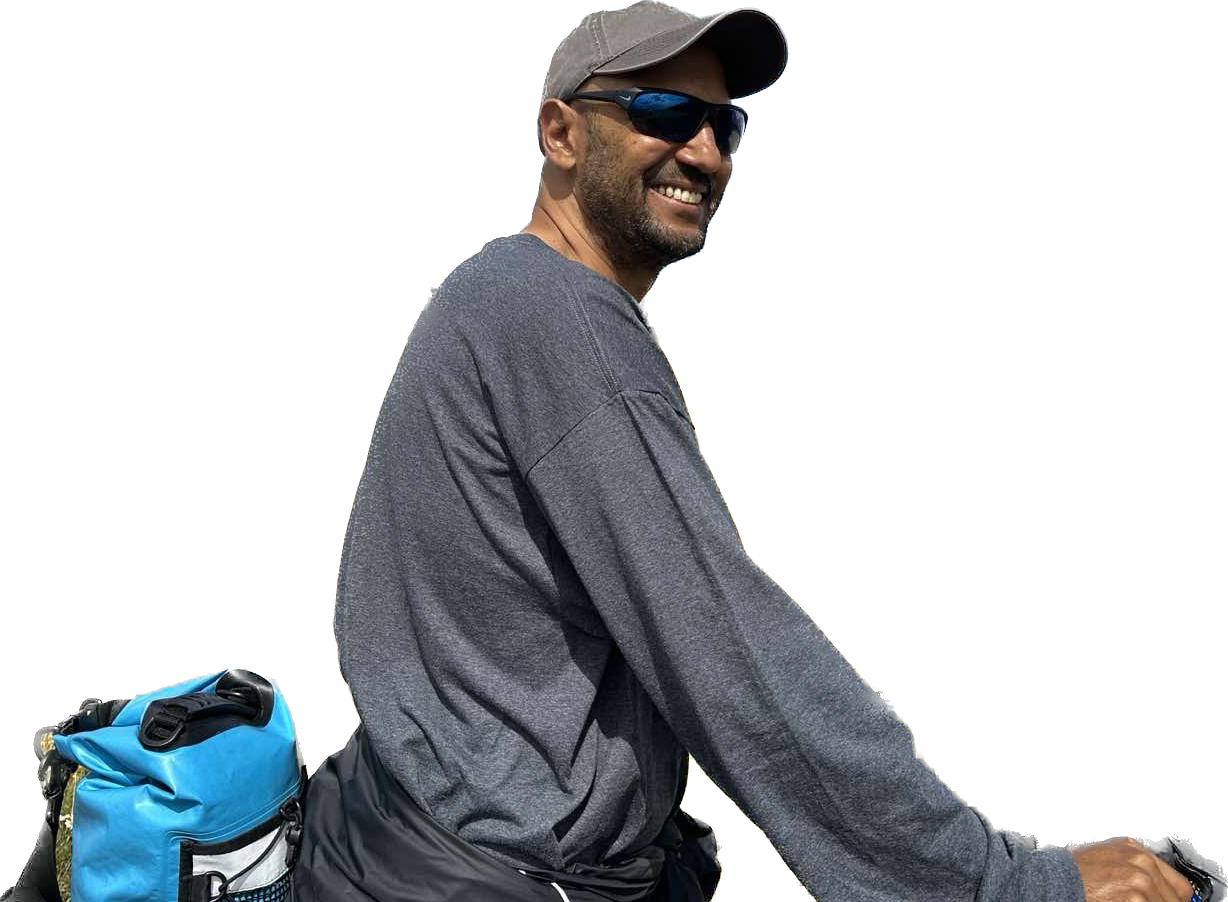In the grand theater of life, let us bear witness to the profound journeys of three children, each born at different points around a 400-meter track, symbolizing the profound disparities of our world:
At the starting line stands a child born to a teacher in Gaza, poised with resolve to embark on a daunting race. From the very outset, this child confronts a myriad of challenges. Conflict and economic hardship cast shadows over their early years. Basic necessities like clean water and proper nutrition are luxuries, and access to quality education remains a distant dream. Moreover, for over 75 years, Palestine, including Gaza, has endured an apartheid system imposed by Israel. Gaza remains occupied and encircled by the Israeli military, dictating every facet of life. Every step forward becomes a battle against overwhelming odds, a defiance against oppression and injustice.
Further along the track, at the 270-meter mark, strides the child of a teacher born in Germany. This child experiences a vastly different reality from the earliest days. Growing up in a country renowned for its stable economy and robust social systems, they benefit from comprehensive healthcare, top-notch education, and a nurturing environment. Opportunities seem abundant, with doors opening readily.
Yet, even at this stage, the child from Germany faces struggles. The pressure to excel, to meet the expectations of a society valuing achievement, weighs heavily. Fierce competition, high standards, and the constant fear of falling short accompany their journey. It is a delicate balancing act between ambition and the desire for a simple childhood.
Lastly, just a single step away from the finish line, stands the child of the King of England. Born into royalty, their world is one of opulence and privilege from their first breath. Lavish palaces, private tutors, and the finest education money can buy are at their disposal. Every desire is effortlessly met, shielded from the harsh realities many endure.
Behind this facade of luxury lies a frequently overlooked truth, the child of the King benefits from taxpayer support. The lavish lifestyle, extravagant ceremonies, and upkeep of royal residences are funded by hard-earned citizen contributions. While the child of the King revels in privilege, taxpayers foot the bill, often without a voice in expenditure.
As the starting signal echoes, the child from Gaza sets forth with determination etched into every fiber of their being. Each stride is a testament to resilience, a defiance against stacked odds. The lack of resources only fuels their determination, propelling them with fierce resolve to break free from poverty’s chains, conflict’s grip, and the oppressive walls confining them.
Meanwhile, the child from Germany, with a 270-meter lead, navigates the track with a blend of confidence and trepidation. Advantages come with their own set of challenges. The pressure to succeed, to fulfill their hard-working parents’ dreams, weighs heavily. Yet, they persevere, driven by a desire to seize the opportunities before them.
Finally, with a final, effortless step, the child of the King crosses the finish line, claiming victory without breaking a sweat.
The journeys of these three examples are marked by profound disparities in starting points. The metaphor of the track race vividly paints the injustices ingrained in our world. It calls on us to bear witness to these children’s paths, to comprehend their complex lives, and to acknowledge the profound impact of their circumstances at birth.
Contemplating these stark inequalities reminds us of the pressing need for concepts like PEOPLEIZE, where equality transcends aspiration to become a tangible reality. Envision a world where life’s starting line is level for all, where every child enjoys access to quality education, healthcare, and growth opportunities. Picture the child from Gaza standing shoulder to shoulder with the child from Germany and the child of the King, each with an equal chance to succeed based on their merits, talents, and efforts.
To realize this vision of equality, we must strive to dismantle the structures perpetuating injustice. This entails addressing systemic inequalities, advocating for equitable resource distribution, and ensuring every individual, irrespective of background, receives the support and opportunities needed to thrive.
Unfortunately, the journey towards equality faces hindrances from powerful nations like the United States, the United Kingdom, and Israel, repeatedly flouting international laws and United Nations resolutions. Here are a few examples:
United States:
- Ignored UN Security Council Resolution 242, calling for Israeli forces’ withdrawal from 1967 war-occupied territories.
- Unilaterally moved its embassy to Jerusalem, disregarding UN resolutions recognizing East Jerusalem as occupied Palestinian territory.
- Provides substantial military aid to Israel despite international law violations.
- Supports oppressive regimes in the name of geopolitical interests, deepening global inequalities.
United Kingdom:
- Supported the Balfour Declaration of 1917, laying the groundwork for Israel’s establishment without due regard for Palestinian rights.
- Complicit in arms sales to Israel despite evidence of human rights abuses against Palestinians.
- Failed to uphold obligations in the Fourth Geneva Convention, protecting civilians in conflict zones.
- Historically maintained colonial practices, exploiting resources and labor in former colonies.
Israel:
- Occupation and Settlements: Israel’s ongoing occupation of Palestinian territories, including Gaza, is a central issue affecting the lives of children. The expansion of illegal settlements further restricts the rights and freedoms of Palestinians, including their access to education, healthcare, and basic services.
- Apartheid System: Many international bodies and human rights organizations have accused Israel of maintaining an apartheid-like system, which systematically discriminates against Palestinians. This system impacts every aspect of life for Palestinian children, from education to freedom of movement.
- Defiance of UN Resolutions: Israel has consistently defied numerous UN resolutions calling for an end to its occupation of Palestinian territories. This defiance perpetuates the cycle of oppression and hinders the prospects of peace and stability for children in Gaza.
- Military Actions: Israel’s military actions, often disproportionate and indiscriminate, have resulted in countless civilian casualties, including children. The siege on Gaza, with its severe restrictions on goods and movement, creates an environment of despair and hopelessness.
Impact on Gaza’s Children:
- Limited Access to Education: The oppressive systems and conflicts perpetuated by these nations restrict access to quality education for children in Gaza. Schools are often damaged or destroyed in military actions, disrupting the learning process.
- Healthcare Challenges: The blockade on Gaza, supported by these nations, limits access to essential medical supplies and services. Children suffer from preventable illnesses and injuries due to these restrictions.
- Trauma and Psychological Impact: Living under constant threat of violence and conflict takes a severe toll on the mental health of Gaza’s children. The sound of airstrikes, loss of loved ones, and displacement create lasting trauma.
- Denied Basic Rights: Basic rights such as clean water, adequate nutrition, and a safe environment are often denied to children in Gaza due to the oppressive systems upheld by the U.S., UK, and Israel.
Moreover, global financial institutions like the International Monetary Fund (IMF) and the World Bank contribute to creating a modern-day colonial system, perpetuating economic dependence on wealthy nations. The European Union (EU) has also faced criticism for policies hindering its former African colonies’ economic independence, controlling currency policies and trade agreements to limit sustainable development.
In the face of these injustices, the concept of PEOPLEIZE becomes more than an ideal—it becomes a necessity for a world where fairness, dignity, and human rights prevail. It beckons a reimagining of societies, where the few’s privileges do not come at the expense of the many.
Imagine a world where international laws and UN resolutions are respected, where every child, regardless of background, thrives and succeeds. Envision financial institutions uplifting nations rather than subjugating them, where genuine partnerships replace colonial legacies.
This vision propels the concept of PEOPLEIZE—a call to action for a more equitable, just, and humane world. It demands our collective efforts to dismantle oppressive systems, challenge unjust policies, and forge a future where every individual races through life with freedom, dignity, and hope.





